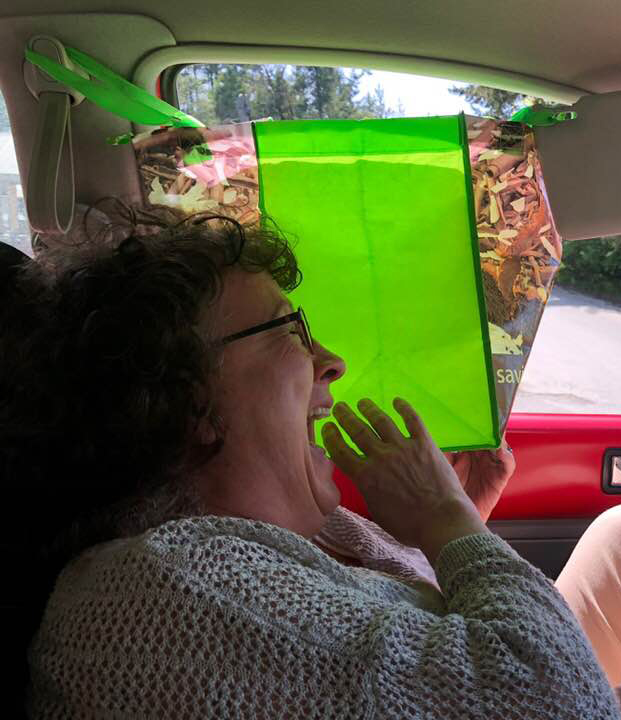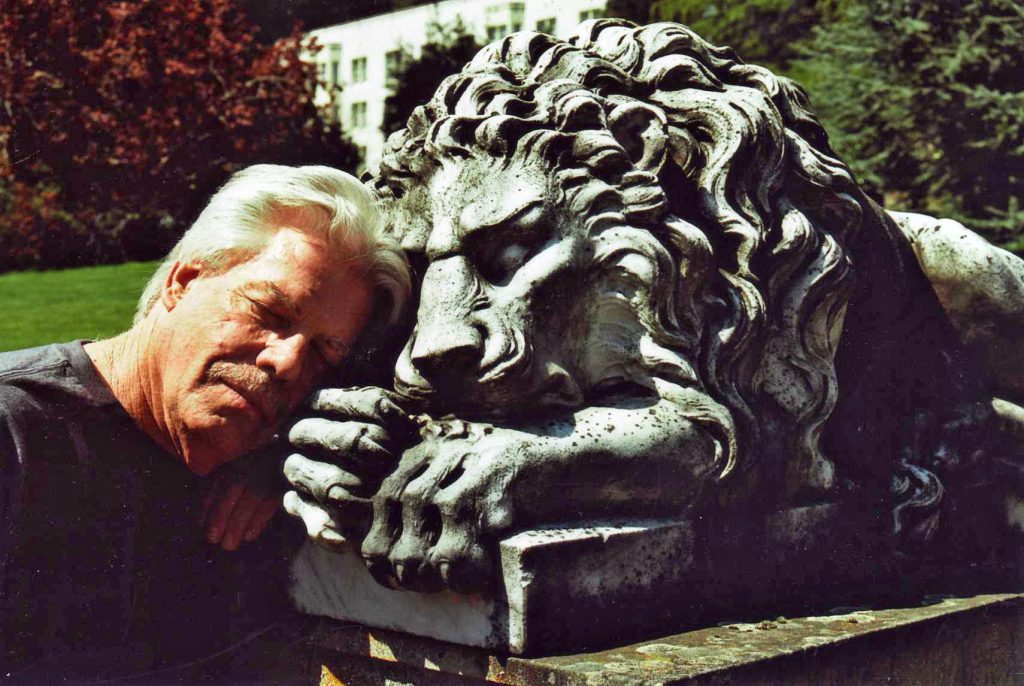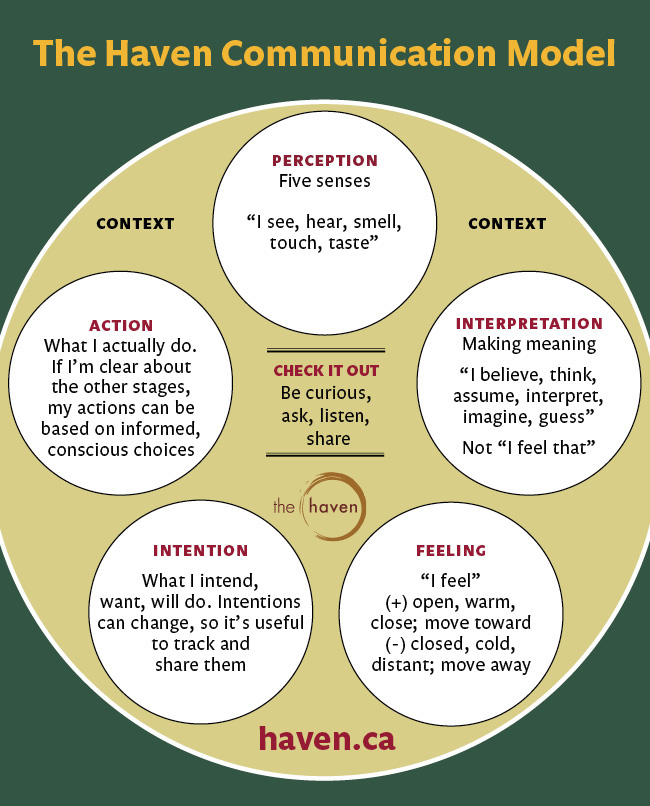Behind the Scenes: Act Natural
Updated December, 2018.
Jane Geesman and Sarah Lucht created Act Natural at The Haven in 2001. This is their story…
Jane Geesman writes: Some years ago, I had a lively conversation over dinner with Ben and Jock, Haven Founders, about the impact Haven programs were having on my work in theatre. Their concepts of presence, intimacy, communication, and energy – so applicable to the challenges faced by actors! I told them how actors, good actors, must commit to the processes of self-discovery, authentic expression, and connectedness; that to imbue performances with compelling texture and depth, actors must be open, responsive, and alive.
I had integrated many of their teachings into my work as a teacher and director and had discovered that well-established acting techniques blended beautifully with the deeply personal work I’d witnessed and experienced firsthand at The Haven. A revelation!
During that meal, Ben and Jock planted a seed in my brain: Why not create a workshop that offers opportunities for personal growth in the theatrical context? Why not merge solid fundamentals of actor training with concepts of relationship and intimacy? Why not indeed!
Soon after that discussion in the dining room, Sarah Lucht and I began the process of creating our Act Natural workshop. We’ve presented our weekend seminar many times over the years, at The Haven, in Portland, and in the San Francisco Bay area. We feel honored and, dare I say it, lucky to be doing this work that’s so exciting, valuable, challenging, and fun. And none of this would have happened, I’m quite certain, had it not been for the loving support and brilliance of our dear friends, Ben and Jock.
Sarah Lucht writes: I remember the director of a play I was in years ago giving the following note to a young actor:
“At the top of the second act, I really can’t have you sitting in that armchair by the potted plant and muttering your line under your breath. I couldn’t hear the line, and the plant is obscuring your face.” To which the actor countered, “Yes, but my character has just learned of his wife’s death. I want the audience to feel how devastated I am.” The director replied, “Well, I’m sure that’s all perfectly fascinating, but remember, your first obligation as an actor is to be seen and heard.”
This may seem an obvious point, but it’s amazing how we human beings shrink from being seen and heard. Really seen and really heard. And actors – whose job it is to stand in front of audiences who are paying good money to see us and hear us – are just as likely to hide behind potted plants and mumble indistinctly as anyone else. I know that I have hidden on stage behind costumes, foreign dialects, Shakespearean verse, and (worst of all) counterfeit emotion. I have “produced” a performance, “constructed” a character, added, embellished, and elaborated, in an effort to “help” the audience “understand.” I have, in short, done just about everything but be myself. Did I say I’ve done this on stage? I have done this everywhere.
As I witnessed the work done in the middle of the session room at my first Come Alive some years ago, I remember thinking, This is what I want to experience in the theatre. I want to be engaged like this, resonate with my fellow man, feel my own aliveness. I recognized the generosity and integrity of those who were “on stage,” breathing, expressing, pounding the block in rage, dancing with joy. They were not “performing”; they were not “emoting.” They were not self-conscious, nor were they “helping” me understand their emotional life. I recognized that it can be frightening in the middle of a big group and was struck all the more by the courage of participants (not to mention interns and leaders) who spoke because they were called upon to speak, who acted because they were called upon to act. They, in essence, picked up the cue and opened their mouths, despite fears and defenses.
I have been an actor for nearly 30 years, and this is my process (which gets less and less complicated all the time – not easier, but less complicated): I memorize the playwright’s words, direct my attention to the other actor onstage and invest my energy in the pursuit of the objective the playwright has set down for me. I pick up my cue and open my mouth, despite uncertainty and fear. This is in service of my job. And my job is to give the play to the audience.
After 15 years as a participant, intern, and Act Natural leader at The Haven, my experience as a human being is more and more like the one I have as an actor. My attention moves outward (curiosity about the other); I pick up my cue (listen to what the other is saying); and open my mouth (express myself). It occurs to me that being an actor is wonderful training for becoming a more authentic and alive human being. I am accustomed to feeling frightened and anxious and uncertain – and performing anyway. I am trained to listen and to speak when called upon to do so. I have embraced the discipline and wisdom of that old theatre maxim, “The show must go on.” I am reminded over and over again that our time is limited: Only so many hours of rehearsal until opening night; only so many performances before the show closes. And none of it will ever come again. Over and over I remind myself that my primary job, both on stage and off, is to listen and to respond. To be seen and heard.
In his wonderful book about acting, True and False: Heresy and Common Sense for the Actor, director and playwright David Mamet offers this as the best acting advice he knows: Invent nothing, deny nothing. This, he says, is the meaning of character. I think of these words often when I work as an actor, an intern, and a teacher – and more and more, their impact has served to clarify and deepen my everyday life.



